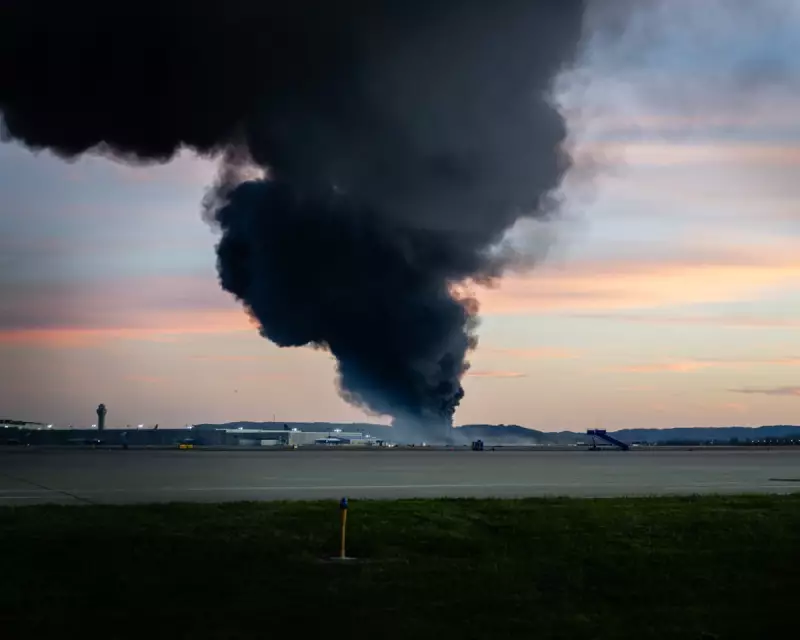
Aviation authorities in the United States are piecing together the events that led to a dramatic runway incident involving a UPS cargo aircraft at Louisville International Airport. The Airbus A300 freighter, operating as UPS Flight 5X-1366, experienced a serious malfunction during its takeoff roll, resulting in the aircraft veering off the paved surface and becoming stuck in grass and mud.
The Moment of Crisis
According to preliminary reports from the National Transportation Safety Board (NTSB), the incident occurred around 10:30 PM local time as the aircraft was accelerating for departure. Witnesses described seeing the massive cargo plane suddenly deviate from the centreline before coming to an abrupt stop in soft ground adjacent to the runway.
The aircraft sustained significant damage to its landing gear and undercarriage systems, though fortunately, both crew members emerged physically unharmed from the harrowing experience.
Investigation Underway
NTSB investigators have descended upon the airport to conduct a thorough examination of multiple factors that could have contributed to the accident. Their focus includes:
- Detailed analysis of the aircraft's braking and steering systems
- Review of cockpit voice recorder and flight data recorder information
- Assessment of runway conditions and weather factors at the time of the incident
- Evaluation of crew procedures and decision-making processes
Early observations suggest the nose gear steering mechanism may have malfunctioned, though investigators stress it's too soon to draw definitive conclusions.
Operational Impact and Response
The incident caused significant disruption to operations at Louisville International Airport, a major hub for UPS's global cargo network. Airport authorities temporarily closed the affected runway while recovery operations commenced.
"Our immediate priority is the safe recovery of the aircraft and supporting the investigation," stated a UPS representative. "We're working closely with authorities to understand what occurred and will implement any necessary safety enhancements."
Broader Safety Implications
This incident raises important questions about the safety of aging cargo aircraft fleets. The Airbus A300, while a reliable workhorse for cargo operators worldwide, represents an older aircraft design that has been largely phased out of passenger service.
Aviation safety experts note that while cargo operations maintain rigorous safety standards, the economic pressures of freight transportation can sometimes lead to different maintenance and replacement cycles compared to passenger airlines.
The NTSB investigation is expected to continue for several months, with a preliminary report anticipated within the coming weeks. The findings could have implications for cargo operators worldwide and potentially influence safety regulations governing older aircraft types in commercial service.





